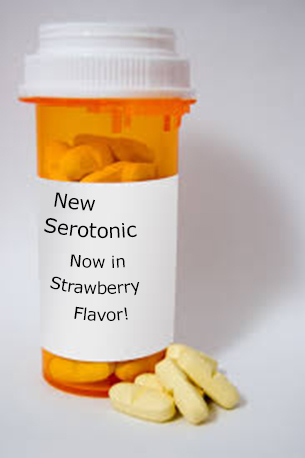 Last week the Federal Trade Commission issued a warning to pharmaceutical companies about exploiting loopholes in the patent process. In particular, patents on inhalers are suspected to be violating federal law.
Last week the Federal Trade Commission issued a warning to pharmaceutical companies about exploiting loopholes in the patent process. In particular, patents on inhalers are suspected to be violating federal law.
The pharmaceutical companies, which were not named, bar competitors from the drug market by filing patent applications on various aspects of their products. Then they get those products listed in the FDA’s “Approved Drug Products with Therapeutic Equivalence Evaluations” registry, also known as the “Orange Book.”
The Orange Book is like a pharmaceutical bible. Once you’re in, you’re gospel. The Orange Book is a product of the Hatch-Waxman Act, which, among other aims, sought to balance new-drug development with fair competition in the pharmaceutical market.
To make it into the Orange Book, a generic drug-maker must certify that it will not sell its product until after the patents of the initial patent-holder have expired. Fair enough, but expiration in these cases has taken much longer than the 20 years promised by a typical U.S. patent. This is because some pharmaceutical companies take advantage of the patent process by creating “patent thickets” in which they continually file patent applications on various aspects of their product, such as use and delivery methods, in order to create a “thicket” of patents that artificially reserve intellectual property for more than the allotted 20 years, despite lack of innovation. Most of the applications filed in these thickets have little to do with the drug itself; many of them are for things like new coatings on pills, new injector pens or new inhaler apparatuses.
In the well-known case of AbbVie’s Humira drug, the pharmaceutical company filed 132 additional applications for secondary patents after having patented their primary invention. Nearly half of these were filed after 2014, only two years before the Humira drug patent was to expire. Once granted, these patents gave AbbVie an extended monopoly on rheumatoid arthritis treatments, along with other, off-label uses. This made Humira the biggest-selling drug of all time, with revenues of $200 billion.
We described the patent-thicket tactic in a 2018 blog post with an update in a 2019 post.
AbbVie’s patent thicket has finally been weed-whacked with the expiration of their main Humira patent last January. (AbbVie’s secondary patents will remain in force until 2034.) Biosimilar drugs are now on the market, and they include a drug manufactured by Amgen called Amjevita, plus about seven more to come to market within a year. Price drops have yet to surface, with patients still waiting for what was a $70,000 annual price tag to come down.
The tactic around patent thickets is often cited in the argument for reforming the US patent system. Companies with massive budgets can legally game the patent system, limiting competition and forestalling innovation.
The US Patent and Trademark office gives a 20-year grant of exclusivity to a patent-holder. It does this to protect the inventor’s hard work of research and development. But at the end of 20 years, that exclusivity expires to make room in the market for other innovators. A patent is meant to protect an invention for a reasonable amount of time, not perpetually. Even if they claim in their albeit granted patents to be protecting new methods of treatments, new drug formulations and manufacturing, big pharmaceutical companies like AbbVie are abusing their market power to take advantage of the system and artificially dominate the market. The losers, of course, are patients who have come to rely on drugs like Humira.
This is original content written by Regina DeAngelo and is copyright Keeley DeAngelo, 10/2/2023. Please cite accordingly.
Sources:
https://pubmed.ncbi.nlm.nih.gov/36842533/
blog.petrieflom.law.harvard.edu/2021/01/06/abbvie-humira-antitrust-patent-thicket/
https://www.npr.org/sections/health-shots/2023/01/31/1152513058/abbvies-blockbuster-drug-humira-finally-loses-its-20-year-200-billion-monopoly
https://patents.google.com/patent/US6090382A
